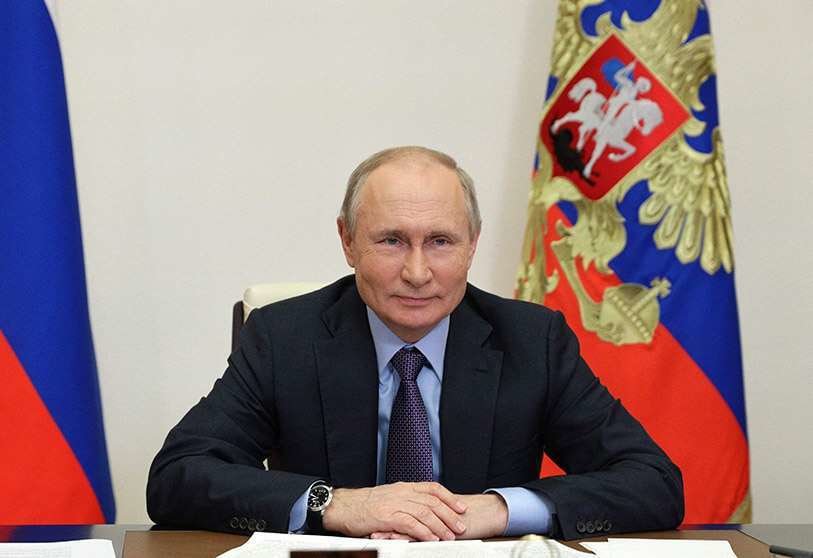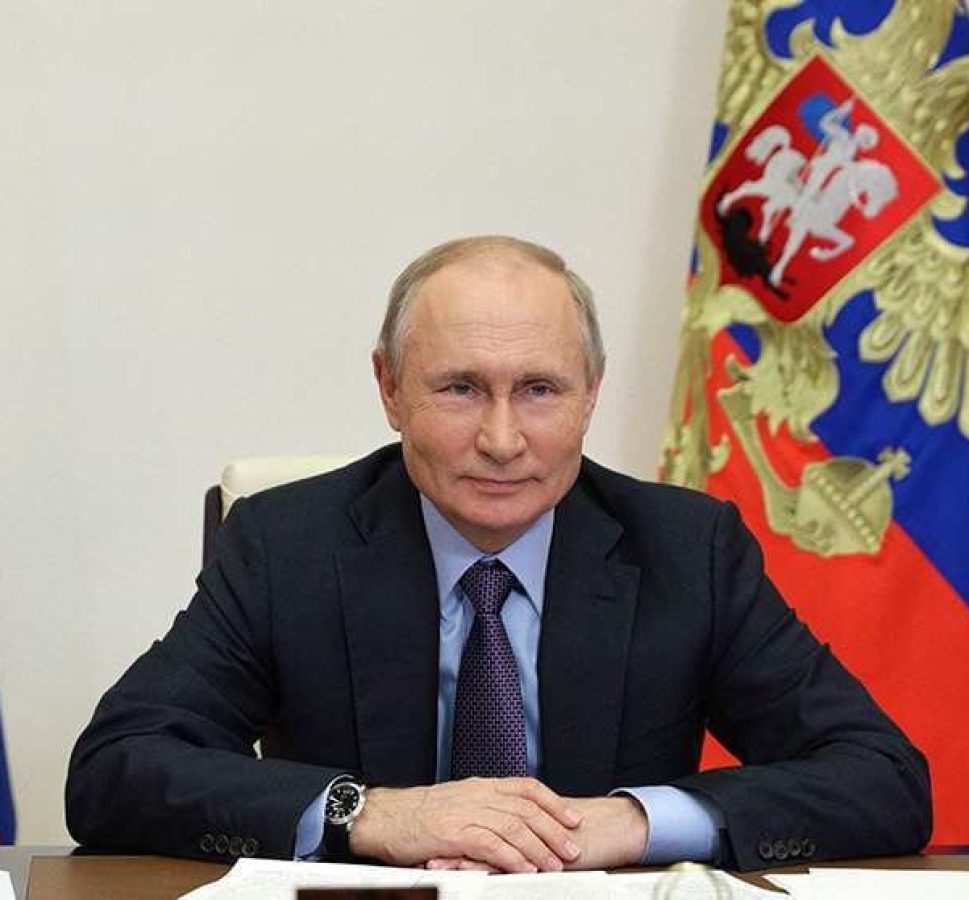
Although Putin’s popularity among most Russians is not in doubt, observers and analysts say the recent election was far from free and fair.
Mykola sarcastically wonders whether he “voted” correctly.
The Ukrainian police officer left his home village near the southeastern city of Mariupol on February 25, 2022, the day after Russia’s full-scale invasion began.
More than two years later, his elderly parents, who opted to stay under Russian occupation, told him they saw his name in the list of voters at the March 15-17 presidential vote.
In his absence, election officials faked his “vote” for Russian President Vladimir Putin, Mykola alleged, echoing reports of widespread vote rigging documented by rare and heavily persecuted independent monitors in the Russia-occupied parts of four Ukrainian regions – and in Russia proper.
Mykolay’s parents also told him about how masked, heavily armed servicemen plodded the streets accompanying election officials who urged residents to fill in early ballots.
“Government employees have been forced to vote, required to provide photo reports” showing their ballots with Putin’s name ticked off, Mykola, who withheld his last name and his village’s location to protect his parents, told Al Jazeera.
Vote rigging in the Russia-occupied parts of four Ukrainian regions harks back to the decades of similar practices documented in Russia that included coercion to vote, ballot staffing, and “carousels” – when groups of people are bussed to dozens of polling stations.
This reporter, accompanied by an independent election monitor in a northern Moscow suburb during the 2012 presidential vote, witnessed the arrival of several busloads of men, some of them visibly drunk, who loudly said they “only vote for Putin”.
Hours later, the same men arrived at a different polling station, this reporter observed.
An election official at the time said the “usual” winners at previous elections were either Communist Party leader Gennady Zyuganov or flamboyant ultranationalist Vladimir Zhirinovsky.
However, the polling station always reported Putin’s victory, the official – a tired teacher who finished counting the votes at 4am – said on condition of anonymity.
‘Record falsification’
Some 110 million Russians were eligible to vote this month, and 87.1 million cast their ballots at polling stations or used an electronic voting system, Russia’s chief election official Ella Pamfilova said.
Almost 65 million of them voted for Putin, she said.
But at least 31.6 million votes for Putin were falsified, claimed Novaya Gazeta, an independent newspaper that has for decades been among the most trusted media outlets in Russia.
Novaya Gazeta’s analysts used a mathematical model developed by election monitor Sergey Shpilkin that uses a discrepancy between voter turnout and votes for each candidate.
If turnout at an individual polling station suddenly increases, the voting goes up sharply only for one candidate against statistical odds – namely, Putin, according to the model.
This year’s vote beat all previous records of vote rigging, Novaya Gazeta claimed.
“This is a record amount of vote falsification at a presidential vote in Russia,” it reported.
Golos, Russia’s last independent election monitor whose staffers and volunteers have faced fines and arrests, said the vote was the least constitutional since Putin came to power in 2000.
“We’ve never seen a presidential campaign that was so far from constitutional standards,” Golos said in a statement.
The key word of this year’s presidential campaign was “imitation,” it said.
The Kremlin imitated the freedom of choice and campaigning with the participation of opposition candidates who were only figureheads from pro-Kremlin political parties, it said.
The Kremlin also imitated transparency and openness, election monitoring and the independence of election officials, Golos said.
Advertisement
To a jailed Putin critic, Putin’s futile attempts to make his rule look legitimate were on full show.
“Perhaps, the results of these ‘elections’ must make the antiwar part of the public apathetic. Apparently, they were designed to,” Ilya Yashin, who was sentenced to eight and a half years in jail for lambasting Russia’s invasion in Ukraine, wrote on Facebook on Monday.
“But it only makes me smirk with derision. These ‘elections’ are not a sign of the dictator’s force, but his self-exposure,” he wrote.
And yet, the vote indicates a tectonic shift in public opinion “from generally antiwar and neutral views to generally prowar ones”, Nikolay Mitrokhin of Germany’s Bremen University told Al Jazeera.
He said even though the turnout was below the official figure, about two-thirds of voters still turned up because of a massive and hugely successful “propaganda” campaign that was boosted by Ukraine’s indiscriminate bombing of border Russian regions.
Even pro-democratic Russians, once neutral about the war, now want “Russia’s unambiguous victory,” he said.
One of the reasons is “a response to Ukraine’s response to the war, and Putin’s propaganda in particular,” Mitrokhin said.
When average Russians want to check what they hear from Kremlin-controlled media, they surf Ukrainian websites and “see that yes, they are hated, called not just aggressors, but various racist names, and everything Russian and related to Russia is banned,” Mitrokhin said.
A Russian national who lives in Germany agrees with him, having seen how elderly Russian-speaking men who emigrated from ex-Soviet Kazakhstan respond to Ukrainian activists picketing the Russian consulate in Frankfurt.
“Sometimes, fights broke out,” Konstantin Rubalsky, a 47-year-old IT expert who visited the consulate a dozen times to obtain documents for his children, told Al Jazeera. “Kazakh grandpas are tough and respond with force.”
Another reason why Russians voted for Putin, Mitrokhin added, is the resilience of their economy in the face of Western sanctions along with Moscow’s moderate gains on the front lines in 2023 and early 2024.
Even though Russia has been hit with the largest set of sanctions in modern history, high oil prices and increased military spending heated the economy and triggered a consumption boom.
“I’ve never seen Moscow consume so much, they’re buying stuff like there’s no tomorrow,” David, a lawyer in Moscow who withheld his last name, told Al Jazeera.
After Russian suppliers found ways to deliver sanctioned Western goods via ex-Soviet republics and use cash or cryptocurrencies to pay for them, anything is available, he said.
“The boom is obvious, and those who gain from it feel different emotions, from guilt to gambling rush,” he said. “But all of my friends understand the fun could be over tomorrow.”






